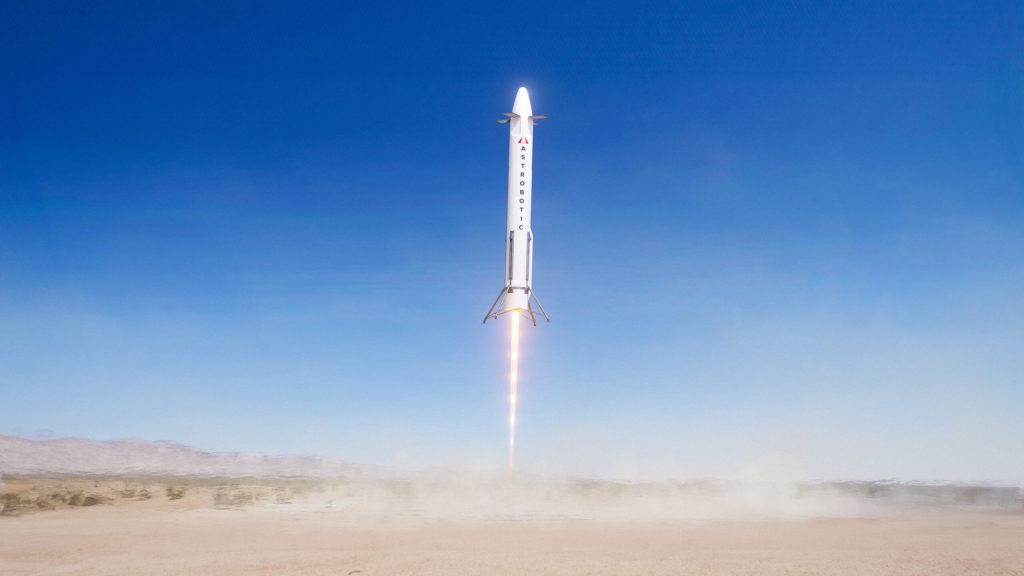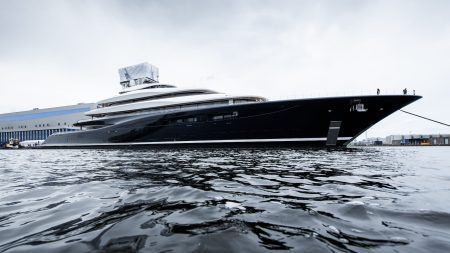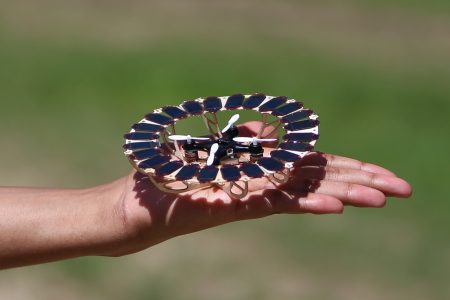WASHINGTON — Astrobotic, a company that creates vehicles for space exploration missions is making a strategic move into the defense sector with its Xogdor reusable rocket designed to test payloads at the edge of space.Masten Space Systems, a company acquired by Astrobotic in 2022, began developing the suborbital Xogdor vehicle in 2021. The rocket, expected to debut in 2025, is funded by a NASA contract, though the company is also looking at applications to support the Department of Defense according to Sean Bedford, Astrobotic’s director of business development for propulsion systems, at the Space Symposium in Colorado Springs last week.
Masten Space Systems, a company acquired by Astrobotic in 2022, began developing the suborbital Xogdor vehicle in 2021. The rocket, expected to debut in 2025, is funded by a NASA contract, but the company said it is also looking at applications to support the Department of Defense, according to Sean Bedford, Astrobotic’s director of business development for propulsion systems.Astrobotic’s existing Xodiac and Xombie suborbital rockets fly from Mojave, California, and the company is in discussions with the Air Force to fly Xogdor from Edwards Air Force Base.
The company earlier this month announced it signed a cooperative agreement with the U.S. Air Force Research Laboratory (AFRL) Rocket Propulsion Division, based at Edwards. Astrobotic’s existing Xodiac and Xombie suborbital rockets fly from Mojave, California. The company is in discussions with the Air Force to fly Xogdor from Edwards Air Force Base.
Astrobotic and AFRL will collaborate on the development of liquid rocket engine technologies and flight testing opportunities.
The company plans to offer the liquid-fueled Xogdor — 27 feet tall and about three feet in diameter — to the U.S. Air Force, the Missile Defense Agency, and other defense organizations for testing and research, as well as for transportation.
Defense applications for Xogdor include suborbital atmospheric research, testing of missile defense systems and hypersonic weapons, and point-to-point cargo delivery.
The reusability of Xogdor means faster turnaround times between missions, enabling more frequent testing opportunities. Potential applications include suborbital atmospheric research, testing of missile defense systems and hypersonic weapons, and point-to-point cargo delivery.
According to Bedford, while the reusable rocket revolution has been led by SpaceX and its Falcon 9 orbital launch vehicle, reusable suborbital rockets like Astrobotic’s Xogdor have received comparatively less attention.
“We expect that there will be different variants of this vehicle. Right now we’re developing Block 1 and expect to fly it in 2025,” he said. “We anticipate an alternative to sounding rockets for Block 2 that’ll be mainly focused on reaching relevant altitudes and providing access to the space environment, as well as doing unique things that can only be done with liquid rockets.”
Xogdor also presents opportunities for rocket cargo with the military's “rocket cargo” program, according to Bedford.
Xogdor’s predecessors, including Xodiac and Xombie rockets, have performed short-range point-to-point flights since 2009, although these were low-speed hops of several hundred meters. Xogdor’s initial flight qualification campaign will involve a series of multi-kilometer point-to-point flights to demonstrate its approach and landing operations, he added.“Beginning with the Block 2 version, Xogdor vehicles will have the ability to travel faster than sound, cover distances of a few hundred kilometers, experience very low gravity, and reach suborbital space.” Although many current sounding rockets utilize solid fuel, Bedford mentioned that Astrobotic aims for Xogdor to be the initial completely reusable liquid-fueled platform for sounding rocket missions.
The potential uses for a reusable suborbital rocket in national security have not been thoroughly investigated.
“Starting with the Block 2 variant, Xogdor vehicles will be capable of supersonic flight speeds, ranges of several hundred kilometers, microgravity environments, and access to suborbital space.”
While most modern sounding rockets use solid propellant, Bedford said Astrobotic hopes that Xogdor will become the first fully reusable liquid-fueled platform for sounding rocket missions.









